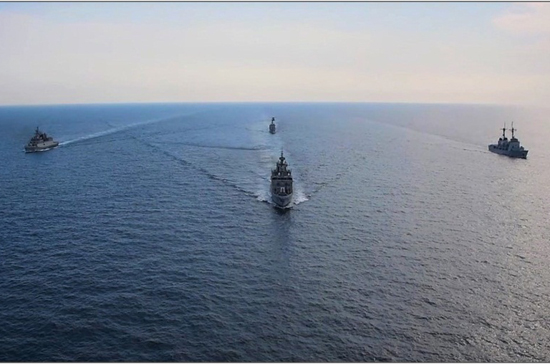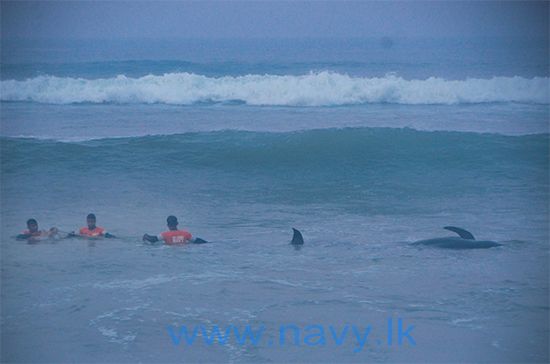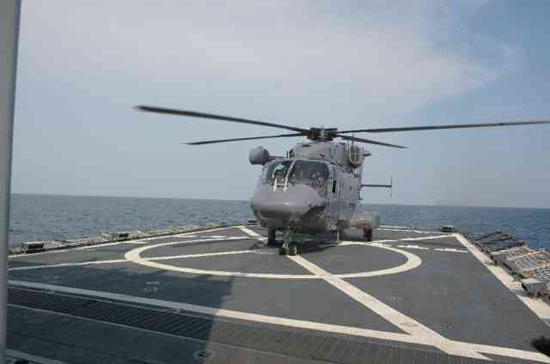
After at least 120 pilot whales became beached at Panadura earlier this month, experts have suggested that a Sri Lankan military exercise in the Bay of Bengal may have lead to the mammals becoming disoriented and stranded.
The Sri Lankan navy and volunteers pulled back the whales into the ocean at the beach just south of Colombo, but several had died before they could be saved. The Sunday Times interviewed experts who suggested that an earlier Sri Lankan navy exercise may have distressed the whales and led to them being stranded.

The navy routinely carries out patrols in the seas surrounding the island and has arrested dozens in recent weeks. The military also concluded a massive military exercise with the Indian navy last month - SLINEX 20 - which saw vessels and helicopters take part. Meanwhile, the Malabar exercise, with India, Australia, the United States and Japan, started in the Bay of Bengal on November 3rd - a day after the whales began coming ashore.

“We suspect there could have been military operations that disoriented them,” said Terney Pradeep Kumar, General Manager of Marine Environment Protection Agency. “But we cannot directly say that they beached as a result of such an operation but there have been cases abroad where it happened after these incidents.”
Suhada Jayawardena, the veterinary surgeon in charge of the Western Province for the Department of Wildlife Conservation (DWC), also suspected that the military operation was responsible for disorientating the whales, who communicate through echolocation and sensitive to sonar and magnetic fields. Signals from the navy vessels and submarines could have led to the whales becoming stranded.
“We initially learned that most of the dead whales had external wounds as they had banged against rock and sand,” said Prasad. Post mortem examinations revealed that many had their lungs willed with water and sand, as they became stranded in unnatural positions.
See more from the Sunday Times here.
